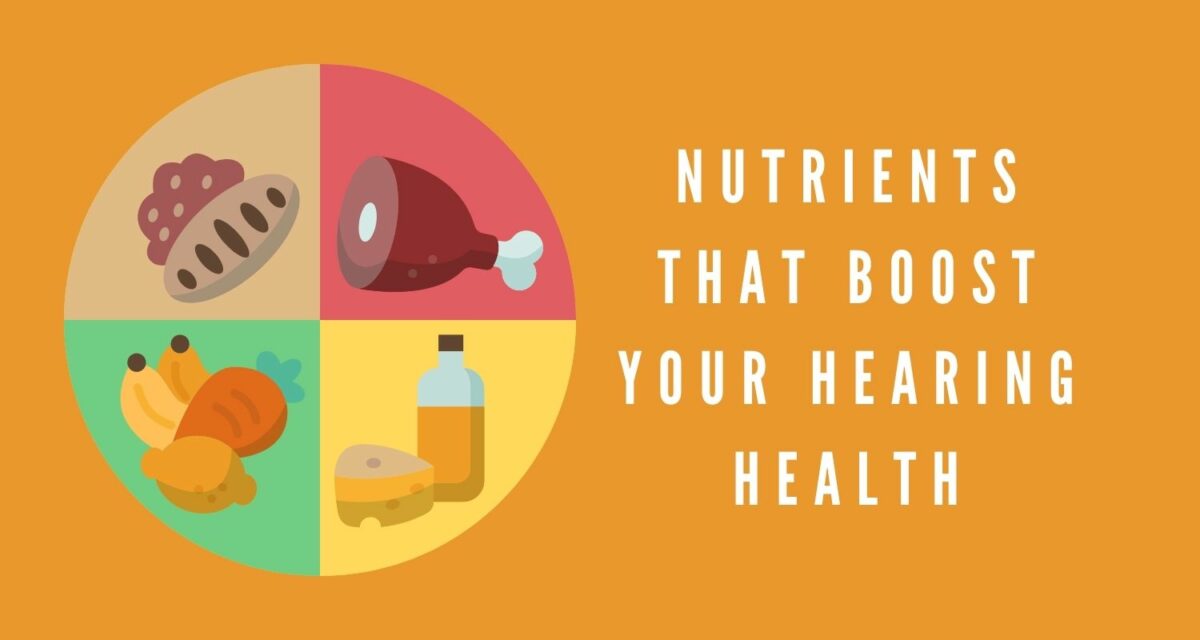Are you concerned about your hearing? Have you found that you have to ask people to repeat themselves more and more often? Are others complaining about the volume of the TV at home when it just sounds fine to you? It is important to keep up with our hearing health and treat a potential issue before it becomes more severe. Hearing loss is a progressive disease which means, even if you are actively treating it it can continue to degrade. However, by choosing a healthy diet, you can add extra protection to your heart health, which can prevent hearing impairments from becoming worse. Along with protecting your ears, turning down the volume, and regular exercise, here are some important nutrients, minerals, and vitamins found in foods, you may already love, which help prevent hearing loss.
Folate
Folate also known as B9 is one of 8 B vitamins which help the body convert food into energy in the body. Folate in particular is essential in keeping your red blood cells healthy. This is particularly important to hearing health, as your ears rely on a healthy supply of oxygenated blood to be delivered, in order to protect the tiny cells of the inner ear, which deliver sound information to the brain. Damage to these cells causes the most common and irreversible type of hearing loss – sensorineural. In fact, a 2013 study discovered that those with lower folate levels were found to coincide with sensorineural hearing loss. To ensure you have enough folate in your diet eat lots of green vegetables such as broccoli, kale, asparagus as well as nuts, beans, and eggs.
Vitamin B-12
This essential B vitamin also helps your body produce red blood cells but also plays a role in nerve function and helps produce DNA. Low B12 has been linked to higher rates of age-related hearing loss as an insufficient supply of this vitamin can cause restricted blood flow to the inner ears causing permanent damage. Find B12 in your favorite foods including poultry, fish, eggs, dairy, or vegetarian sources such as nutritional yeast, nori sea weed, and tempeh.
Vitamins A And E
Vitamin E protects is an antioxidant which protects your cells from damage caused by free radicals which can lead to cardiovascular and inflammatory disease, cataract, cancer, and hearing damage. Vitamin A is important for the immune system as well. 2011 study found that vitamin A was associated with a 47% reduced risk of hearing loss, and vitamin E was linked to a 14% decreased risk of hearing loss. To make sure you are getting enough vitamin A, prioritize beef liver, sweet potatoes, kale, spinach, and eggs. Increase your intake of vitamin E with seeds, squash, sweet potatoes, avocado, and almonds.
Omega-3 Fatty Acids
Omega-3 fatty acids are an integral part of cell membranes throughout the body. They aid in the creation of the hormones which regulate blood clotting, and inflammation. This essential fat can prevent cardiovascular disease, heart attack, stroke, and of course hearing loss. A heart attack or stroke can be debilitating or even deadly. If you survive a stroke or even a constricted supply of blood this will also affect your hearing. A 2010 study discovered that those who had a high intake of omega 3 fatty acids in their diet had a 42% reduction in risk of suffering from age-related hearing loss. To get enough omega-3 in your diet eat fish, sardines, eggs, chia seeds, seaweed, or walnuts.
Magnesium
Magnesium is an mineral found in soil and absorbed by plant matter. It is essential to several functions to maintain body function and overall health including maintaining normal nerve and muscle function, supporting a healthy immune system, keeping the heartbeat regular, keeping bones robust, and adjusting blood glucose levels to prevent diabetes. A recent study found that when taken with vitamin C, Magnesium can fight free radicals and protect your ears from extreme and damaging levels of loud noise. To add more magnesium to your diet, greens are always a friend. Eat lots of broccoli and spinach but you can also find magnesium in legumes, almonds, seeds, beans, edamame, whole grains, and dairy products.
Boosting Your Hearing Health
There are so many important nutrients and foods not even mentioned on this list to boost your hearing health. To find out more, contact us. We can monitor the status of your hearing, find the best solution for your current hearing needs, and find the best solution to protect your hearing into the future.

